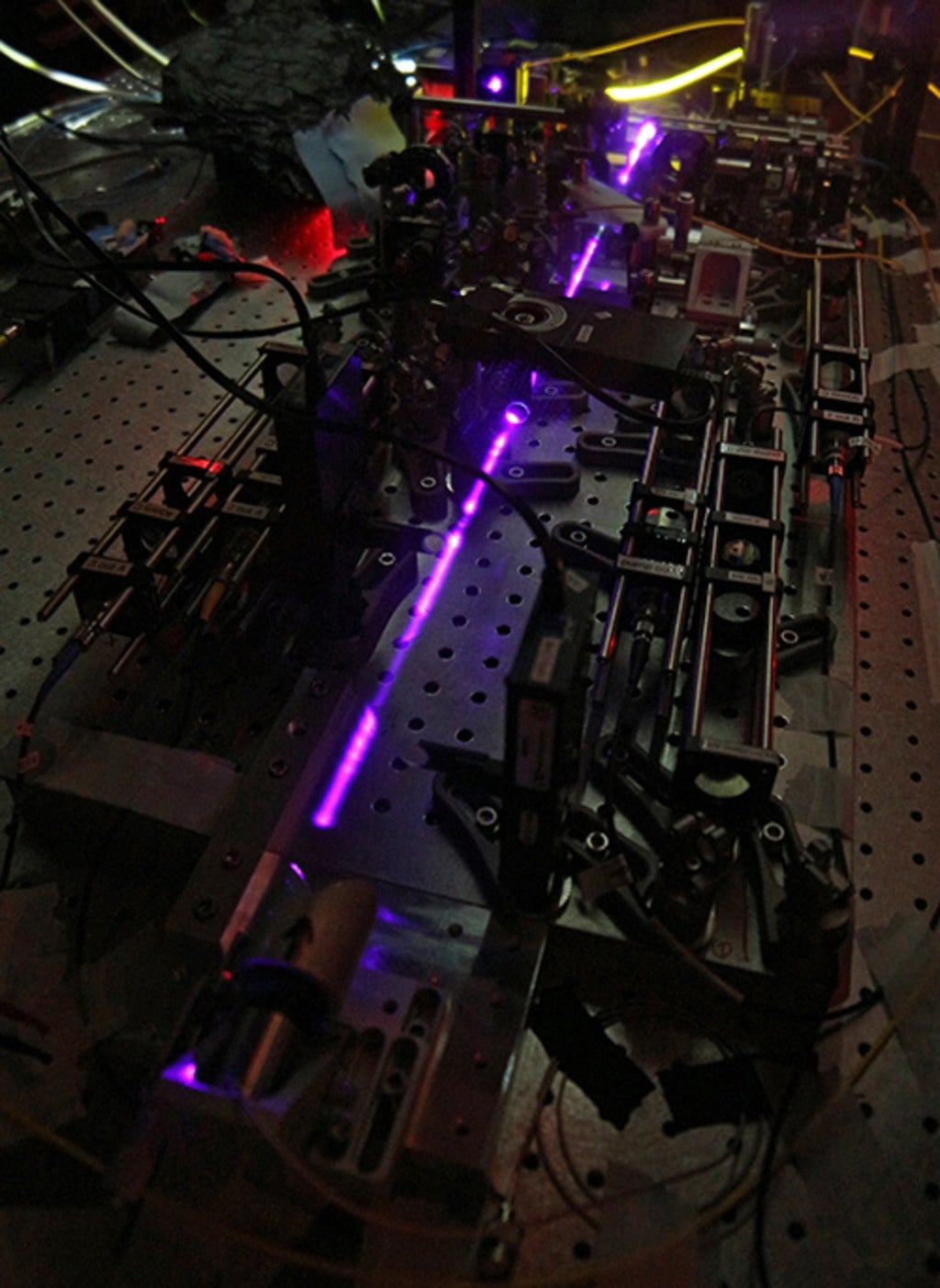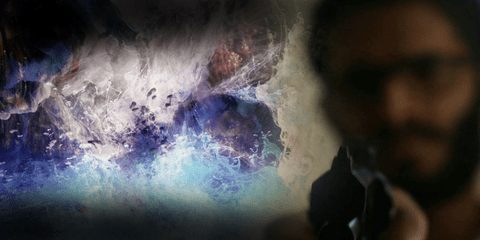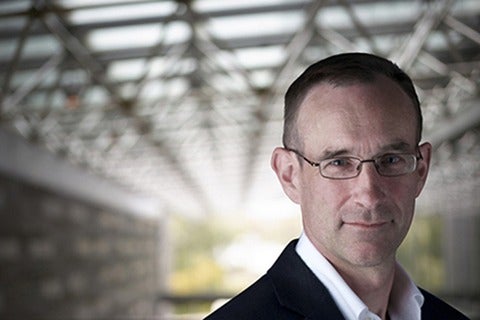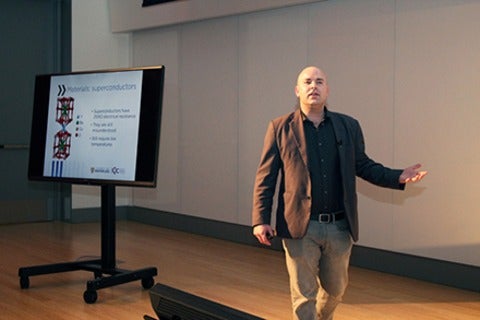Experiment lays foundation for applications in quantum communication
In a paper published in Physical Review Letters, PhD student Sascha Agne and colleagues experimentally realized a three-photon Greenberger-Horne-Zeilinger (GHZ) interferometer and observed genuine three-photon interference for the first time, bringing scientists one step closer to exciting applications in quantum communication.




